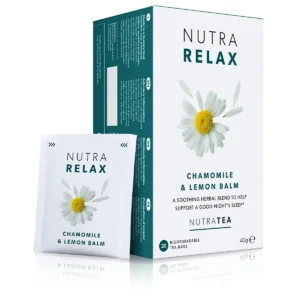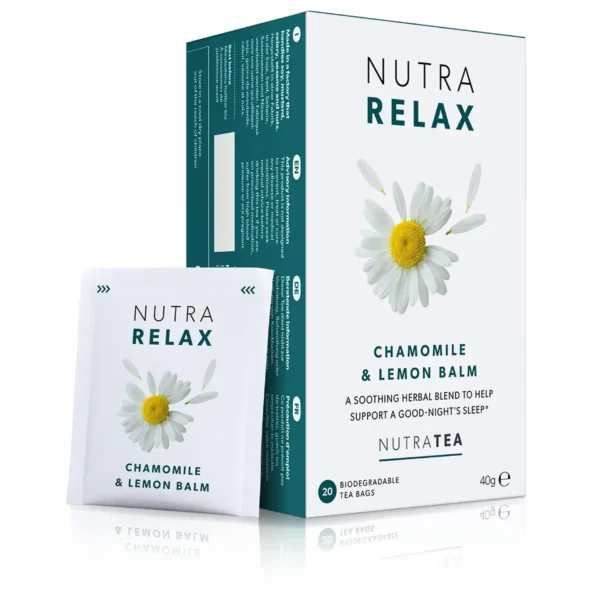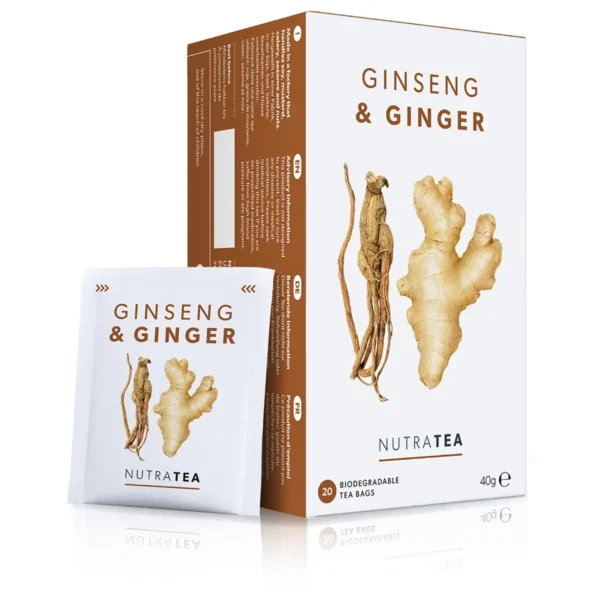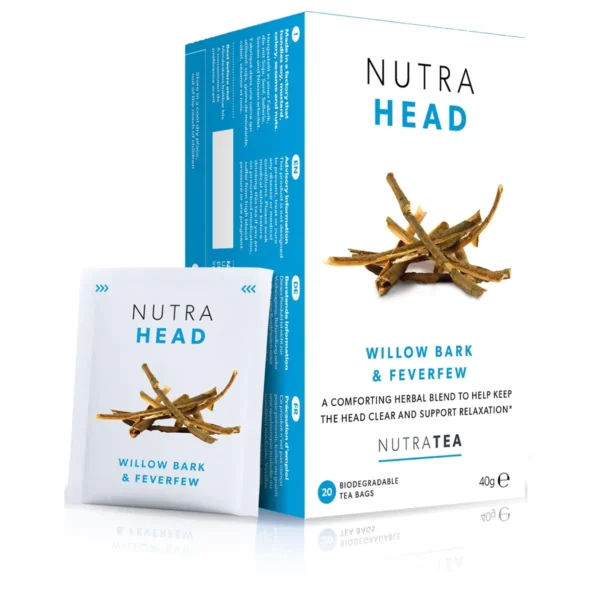NutraBlog
Our guide to looking after yourself- World Mental Health Day 2024

With one in every four people experiencing a mental health problem in England, it’s a topic that needs to be talked about more. While we regularly hear about mental health, self-care and many headlines making the media, how often are you prioritising your mental wellbeing?
In honour of World Mental Health Day 2024, we’ve decided to provide you with a recap on the importance of mental health and our favourite self-care tips we practice to help protect your mental wellbeing.
Dive in with us as we discuss different ways to prioritise and overcome mental health issues.
How do you define mental health?
You’ve likely heard about the topic of mental health thrown around a lot. But do you know what the true meaning is? As per the World Health Organisation, mental health is:
“Mental health is a state of mental wellbeing that enables people to cope with the stresses of life, realise their abilities, learn well and work well.”
Based on that statement by WHO, how would you position your mental health?
Can you cope with the stresses of life?
Whatever your answer, you should do everything in your power to look after your mental wellbeing. Although it’s not visible, it’s equally as important as your physical wellbeing and plays a role in your physical health, too.
10 ways to look after your mental health
Looking after your mental health requires consistent work and effort. Self-care tips don’t always work for everyone; finding the right ones that benefit you is a case of trial and error. In honour of World Mental Health Day, here are some of our favourite self-care tips:
1. Exercise
If you have read your other blogs, you’ll probably see how we stress the importance of exercise in most of them. While exercise can provide a bunch of benefits, its major advantage is that it can help with your mental health. In particular, exercise can help reduce symptoms of anxiety and depression, diminish negative mood, boost self-esteem, and improve cognitive function.
When you exercise, your brain releases neurotransmitters dopamine and serotonin, which can provide you with a feel-good mood. It also helps lower cortisol, a stress hormone, helping you balance your emotions more easily and feel less stressed. Whether it’s dancing, walking, running, going to the gym, or anything else, move your body!
2. Be around family and friends
When our moods start to dip, it can become instinctual to avoid our loved ones. However, the reality is that being around friends and family can reduce the risk of isolation and feelings of loneliness. Being around them can create a feeling of safe space and companionship. It also increases your feelings of belonging and self-worth.
3. Undergo calming activities
Participating in calm activities to help calm your mind can profoundly impact your mental health.
Activities like:
- Meditating
- Reading
- Yoga
- Journalling
- Listening to calming music
Setting time aside for these peaceful mental health activities can positively affect your wellbeing.
4. Focus on your sleep
Sleep is essential to your mental health, and you must get at least 7-9 hours every night consistently. Although there are times when you don’t get sufficient sleep, it’s important to hone your focus on healthy habits to allow you to sleep for longer and deeper. For instance, try to:
- Go to bed at the same time every night
- Limit screen time before you sleep
- Limit caffeine intake before you sleep
- Have a bath before bed
- Try to get up at the same time every day.
5. Stay Grateful
Whenever possible, try to stay positive and upbeat even in tough times. To get in the habit of having a positive mindset, practice gratitude every day. It could be as simple as reminding yourself each day of the things and people in your life you’re grateful for and writing them down. Similarly, at the end of your day, you could journal and reflect on all the positives that have happened in your day.
6. Have regular healthy meals
Your gut plays a major role towards your mental health, it directly communicates with your central nervous system through the gut brain axis. This means the foods you consume can directly impact your mood.
A healthy gut microbiome can promote positive mental wellbeing, whereas an unhealthy gut can contribute to symptoms of poor mental health, such as depression and anxiety. Therefore, try to eat as many natural foods as possible and avoid ultra-processed foods.
7. Undergo goal setting
One World Mental Health Day activity that can help you feel good is defining your goals and priorities. Think about what you want to get done and what can wait until later. Setting on a quest to achieve your goals, no matter how small, can increase your confidence and induce a “can do” attitude to take on other tasks. Slowly accomplishing things can help reinforce a positive self-image, motivating you to pursue other things.
8. Pay attention to the present
Being mindful of the present moment, where you are, and your surroundings can support your mental health. By being more aware of your feelings and thoughts, you can manage them more easily and save the feeling of being overwhelmed. You can practice being mindful by meditating, undergoing breathing exercises and focusing on your senses when doing little daily activities such as eating, washing up or talking.
9. Create your own self care kit
You can never always predict your down days. However, you can prepare yourself for them, and one of the best ways is by making your own self-care kit. A self-care kit comprises things that comfort you and help you feel relaxed. For example, it could be your favourite chocolate bar, book, photos, a fidget tool, blanket and more. You can even make your own digital self-care kit where you save a compilation of your favourite music, videos, photos and quotes to help you manage difficult times more effectively.
10. Take a break from the online world
Sometimes, the internet can greatly impact our mental wellbeing without us even wanting it to. You might find yourself spending more time online than you intend to, or it could be slowly making your mental health worse. Try to take breaks from the internet or unfollow negative accounts or pages whenever possible.
Herbal teas to help with mental health and wellbeing
In addition to these tips, there are some soothing herbal teas we’d like to highlight in honour of World Mental Health Day 2024. They’re not complete cures for mental health; however, they are supportive, soothing aids that can help you re-centre and collect your thoughts. Here are our favourites:
NutraRelax
NutraRelax is a caffeine-free herbal tea that helps you maintain moments of calm and relaxation. Inside NutraRelax are Chamomile, Lemon Balm, and Hawthorn Berry, which help with sleep onset and healthy sleep, which is crucial for mental wellbeing. It also helps support relaxation and eases your physical and mental wellbeing. Liquorice strengthens your nervous system and supports mental function.
NutraBoost
NutraBoost is a fantastic herbal tea that helps fight fatigue and improve alertness. It Contains Gotu Kola, Green Tea, Ginseng, and Ashwagandha, which support mental capacity in the event of exhaustion, tiredness, and loss of concentration.
Moreover, Liquorice and Ashwagandha help provide mental calm, supporting you through periods of anxiousness and nervous tension. NutraBoost also helps you maintain optimal stamina, preserving energy and vitality, helping you go on with your day.
NutraHead
Another herbal tea in honour of World Mental Health Day 2024 that can help with relaxation is NutraHead. Two of its ingredients are feverfew and cinnamon, which can comfort your head and serve as a relaxing support aid. Lavender and cinnamon in NutraHead can help with relaxation and provide support for your sleep.
Ginseng & Ginger
Ginseng & Ginger can be a great herbal tea to gather those calm moments. Completely free from caffeine, this herbal tea can help you with your coordination and concentration and provide great support on more challenging days. Moreover, Ginseng & Ginger help maintain physical and mental wellbeing and help your energy levels, stamina and feelings of vitality.
Chamomile & Valerian
Chamomile and Valerian is a soothing, caffeine-free herbal tea that can help provide you with moments of calm. Chamomile helps support relaxation, healthy sleep, your immune system, and mental well-being in cases of tension and stress. Valerian helps with cognitive function, digestive health, and cardiovascular health.
Wrapping Up World Mental Health Day 2024
Overall, your mental health and wellbeing are incredibly important, and while a day is there to raise awareness, it’s a part of your health you should look after all year round. Mental health issues are highly common and will likely affect your life at some point.
To properly care for your mental health, try exercising, staying connected with family and friends, focusing on your sleep, taking digital breaks, setting goals, and being aware of the present. Want to know more about soothing herbal teas?
Check out our 7 must try calming teas that support mental health and wellbeing.










